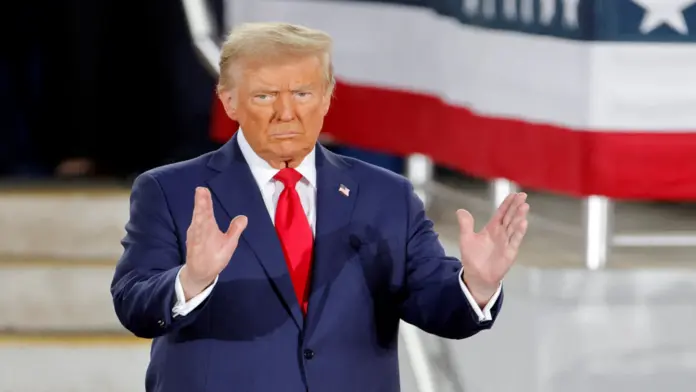U.S. President Donald Trump is himself a politically divisive figure in America whose actions tend to stir controversy locally as well as globally. His recent move, i.e., pulling out the $21 million fund enabling Indian voter turnout, has seen an unprecedented type of scrutiny. The move also attracted talks about the U.S. foreign aid priority, government expenditure, and electoral impacts. In this analysis, the author contemplates the political implications of this move, the perception of voters, and political relevance in general.
The Choice: Repeal of the $21 Million Voter Turnout Funding
The United States Department of Government Efficiency (DOGE) headed by Elon Musk announced on February 16, 2025, that it would be cancelling some of the tax-payer-funded overseas programs. Included was a $21 million program aimed at getting more Indian voters to vote. The action was defended by President Trump as India having such a healthy economy and steep tariffs that its aid was unnecessary.
Addressing the Mar-a-Lago audience while he signed the executive orders, Trump explained, “Why are we paying USD 21 million to India? They’re rich. They are one of the highest-tariff countries against us in the world; we can’t even get in because their tariffs are so massive.” He nodded in approval for his admiration of India and its Prime Minister but couldn’t fathom why the government made such a spending decision.
Also read : NAACP Guide: Companies Backing Out of DEI Programs
The Broader Impact of DOGE’s Budget Redirections
The Indian voter turnout project was one among numerous left-behind initiatives by DOGE. Other left-behind initiatives were:
- $29 million for political landscape construction in Bangladesh
- $39 million for fiscal federalism and biodiversity protection in Nepal
- $10 million for voluntary medical male circumcision in Mozambique
- $1.5 million for voter confidence initiatives in Liberia
- $14 million for social cohesion activity in Mali
- $47 million for educational level improvement in Asia
These cancellations have, one by one, created controversies regarding the U.S.’s international development and administration role.
Implications for U.S.-India Relations
The U.S. and India have a strategic partnership in commerce, defense, and technological relations. The revocation of the voter turnout fund is not going to lead to a serious diplomatic row, but it does question foreign interference in Indian election processes.
BJP leader Amit Malviya challenged the original motive behind the funding, tweeting, “$21M for voter turnout? This is a classic example of foreign interference in India’s elections. Who will benefit from this? Not the ruling party for sure!” His tweet reflects a wider concern in India regarding foreign interference in its electoral processes.
How Voters View Trump’s Decision
Trump’s action to suspend foreign funding is consistent with his longstanding pledge to put American interests first. His base believes that this action imposes fiscal discipline, casting him as a leader who is committed to eradicating wasteful government spending. Trump voters see such reductions as much-needed corrections to previous financial mismanagement.
But critics caution that suddenly canceling these programs would undermine U.S. global influence, possibly alienating allies and diminishing diplomatic influence. Swing voters who believe in international cooperation and democratic support might see this possible choice as a poor one, possibly damaging Trump’s popularity among opposition voter constituencies.
Future Implications for U.S. Foreign Policy
This action is a reflection of a broader shift in U.S. foreign aid policy under Trump’s presidency. His government has consistently advocated for lower overseas expenditure, urging other countries to become self-reliant. If Trump is re-elected, the same funding cuts are expected, again reshaping America’s role in international development and governance.
With the election for 2024 soon on the horizon, Trump’s policy choices—such as this recent cutback on the budget—are set to leave their imprint on the voters’ perception. Though some view the action as a move toward economic prudence, others are wary of its wider implications for global democracy and US foreign relations.
Also read : FAA Layoffs Spark Safety Concerns Amid Staff Shortages
Conclusion
President Trump’s decision to sever the $21 million India voter turnout fund has become the center of heated arguments about government expenses, foreign assistance, and diplomatic relations. It is hailed as a sensible display of belt-squeezing by his allies, and opposed by his enemies in fear of diplomatic consequences. What this decision represents regarding Trump’s “America First” plan—advancing American interests and reconfiguring American participation in global affairs—is no longer arguable. Even as the voters weigh his leadership, his policy choices such as these will be at the forefront of the larger discussion regarding America’s role in the world’s political arena.








